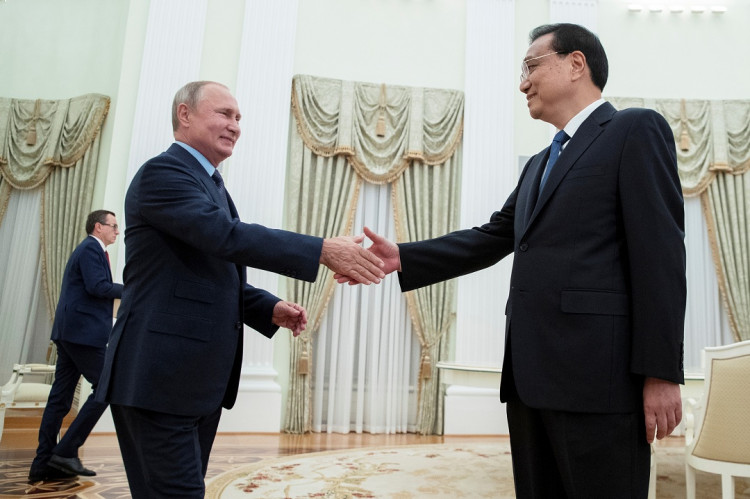Chinese Premier Li Keqiang's three-day visit to Russia was a successful trip as both countries have reportedly now agreed to double their trade over the next five years. China and Russia reportedly want to increase the trade between both nations to over $200 billion by 2024.
To achieve this goal, both nations have agreed to work together to remove tariff and regulatory barriers on the exchange and trading of various goods such as agricultural, industrial, and technological products and services.
Additional joint projects between both nations, mainly in fields such as advanced technology, industry, and agriculture, will also be laid out in the coming years.
The importation of soybeans and wheat from Russia was also a major topic during Li's visit to Russia. The crops have become a major issue for China and its ongoing trade dispute with the United States.
Industry experts have stated that while China will be able to get a good amount of crops from Russia, Moscow's supply will still not be able to completely replace the US as China's primary supplier. Russia's soybean production currently pales in comparison to the US. However, Russia does plan to expand its Far East soybean production regions to increase its exports to China.
Since the trade war broke out last year, China has been trying to find alternate suppliers for its agricultural product needs. It has so far turned to countries such as Brazil and Russia. Given the large Chinese demand, Russia has already taken steps to bolster its production. Russia forecasts that it should be able to produce around 4 million tons of soybeans this year and hopefully much more in the next season.
According to analysts, Russia and China have now become much closer as each country has had its own set of troubles and clashes with the United States. By working together, both nations have apparently now found a way to take advantage of their shares issues with the western nation.
Trade between Russia and China is primarily dominated by oil and gas. The energy sector currently accounts for around 71 percent of the trade between both nations, while agricultural trade only accounts for around 5 percent.
Li's visit to Russia ended on Wednesday, which was celebrated with the signing of a joint statement by Li and Russian Prime Minister Dmitry Medvedev. Both government officials met on Tuesday, where they had agreed to boost trading from $107 billion to $200 billion by 2024. Li also met with Russian President Vladimir Putin during the same day as part of the "New Special Level" agreement between both nations.






